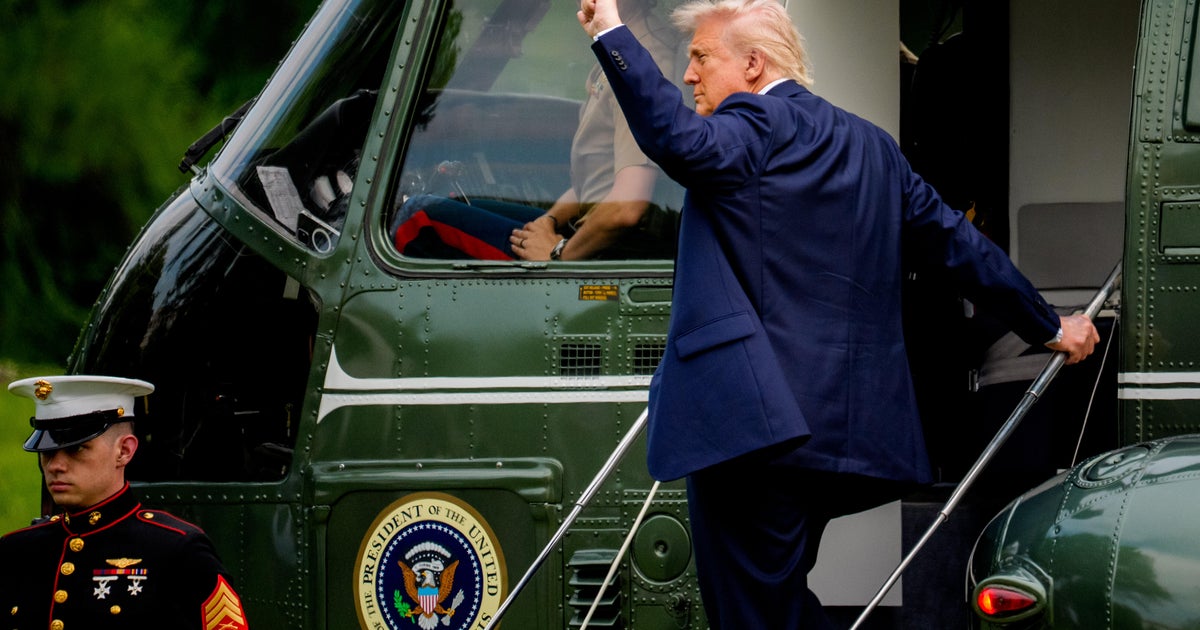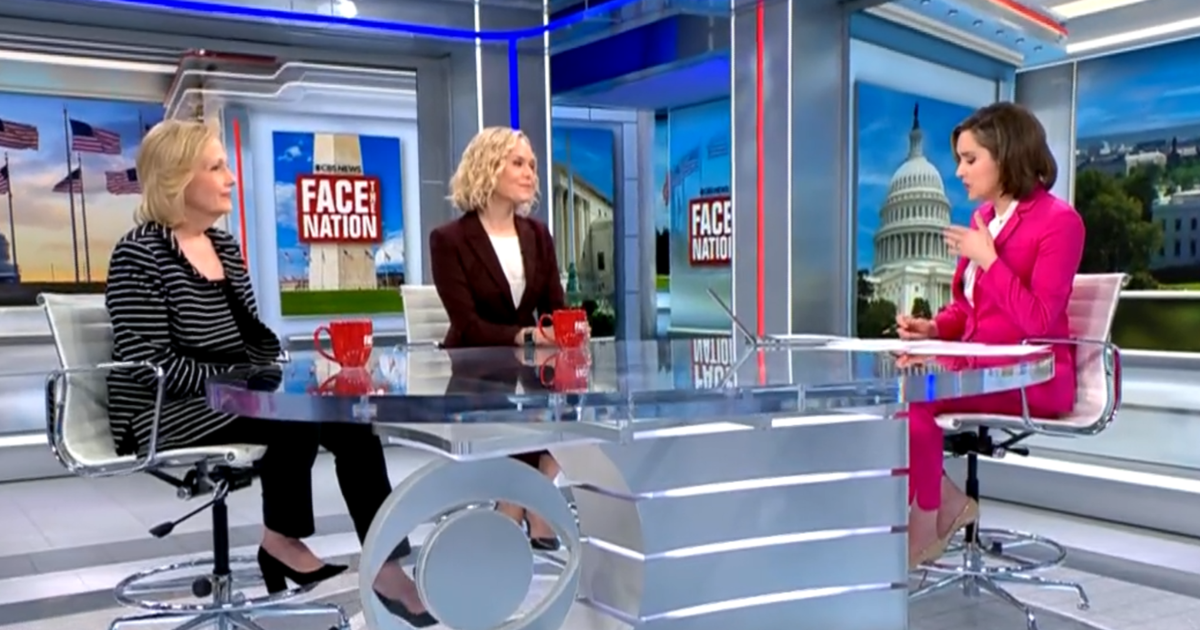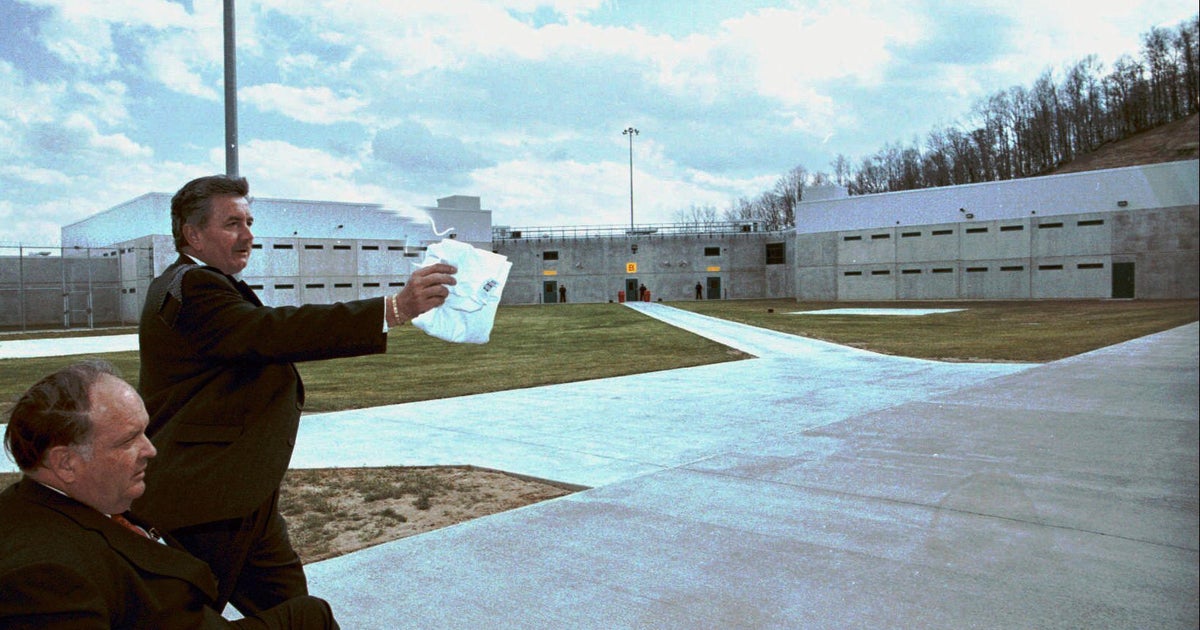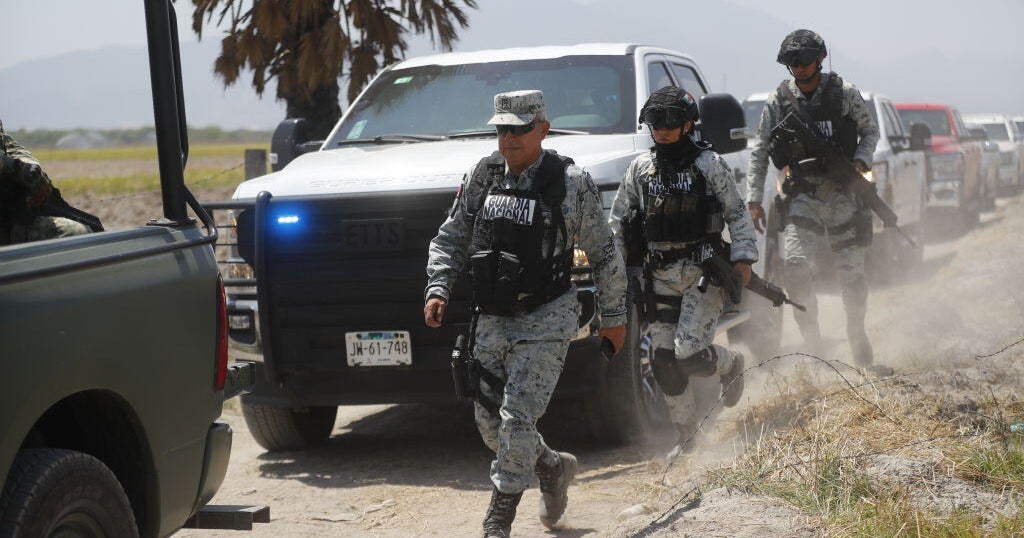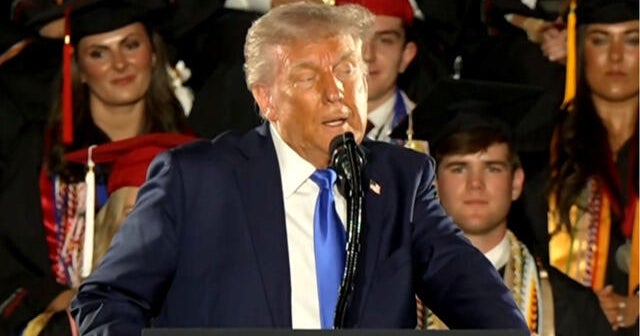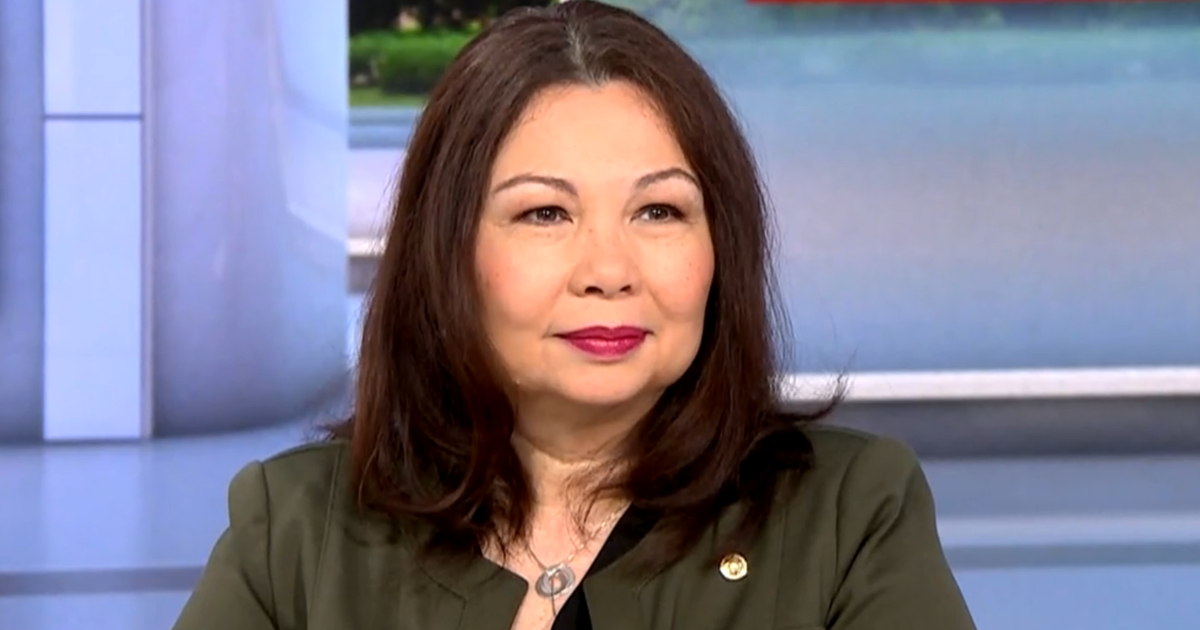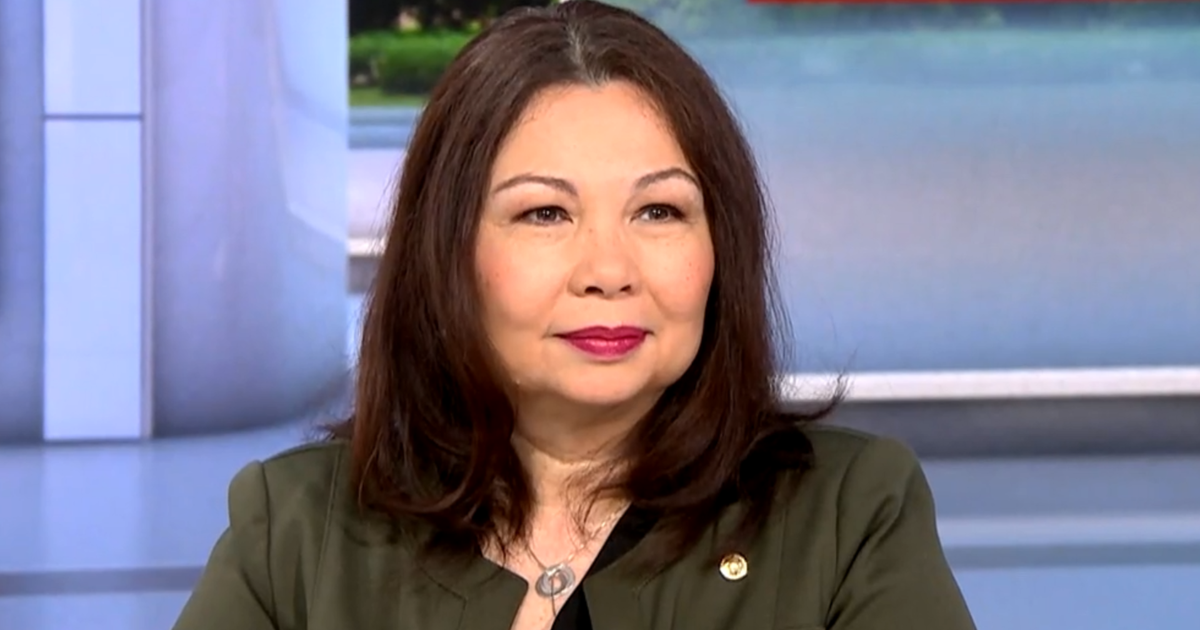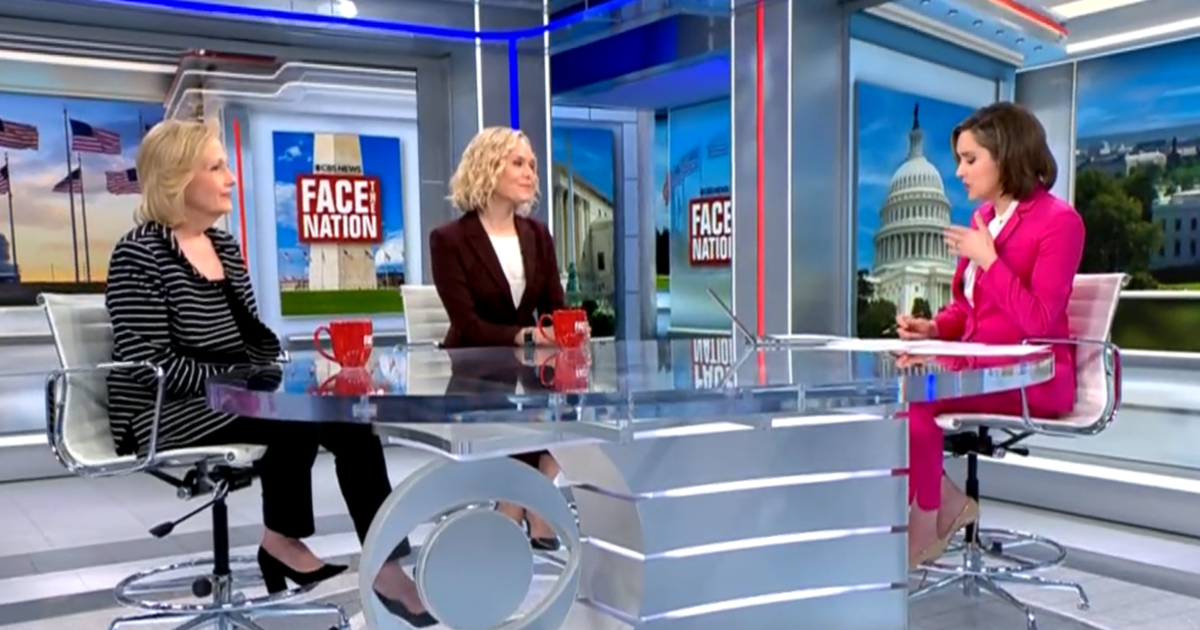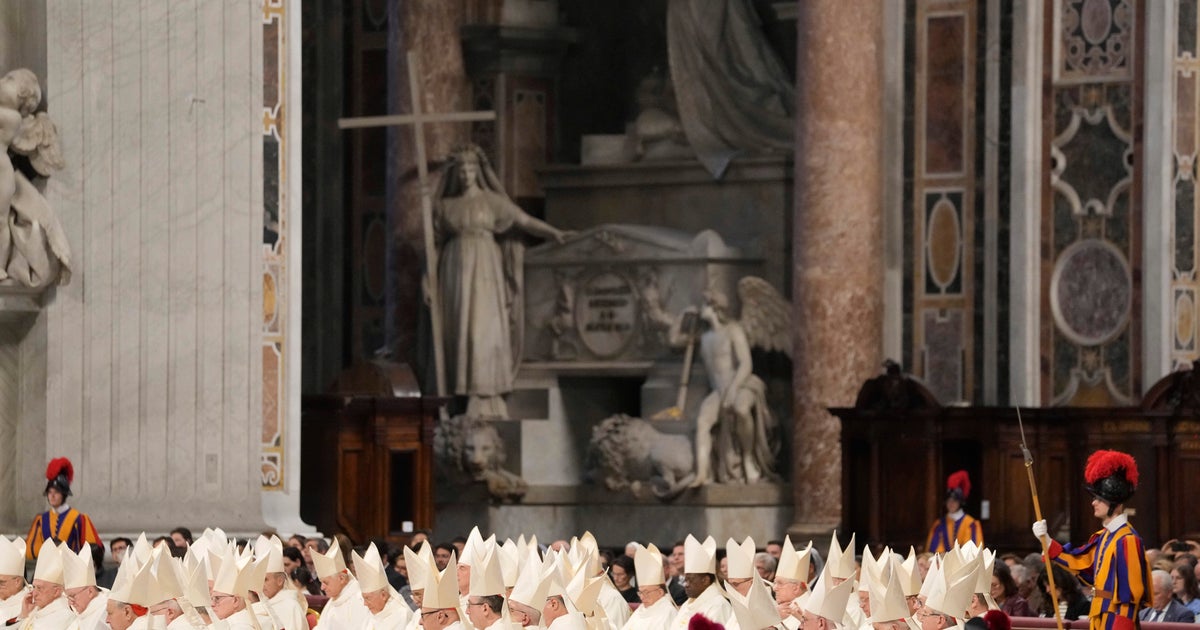The following is the transcript of an interview with Katherine Maher, CEO of NPR, and Paula Kerger, CEO of PBS, that aired on "Face the Nation with Margaret Brennan" on May 4, 2025.
MARGARET BRENNAN: In a commencement address last week at the University of Alabama, President Trump told journalism majors that he's not sure he likes the press, but acknowledged a free press is important.
(VO SOT:)
DONALD TRUMP: We need a brilliant press. They're like a watch keeper. They're very important. And you can go out and take it down a new track. Help save the country.// The people of this country, they know the truth when they hear it. That's why the ratings, the approval numbers of the media, are so low.
MARGARET BRENNAN: Last week, the President offered a cut off, ordered, excuse me, a cut off to federal funding to two major public broadcasting systems, PBS and NPR. For more now we're joined by CEOs Catherine Marr and Paula Kerger. Good to have you both together.
PAULA KERGER: Great to be here.
MARGARET BRENNAN: So the President issued this order for the Corporation for Public Broadcasting, which oversees you both to cut off funding. Are you both filing lawsuits, and on what basis can you challenge us?
KATHERINE MAHER: We're looking at whatever options are available to us. I think it's a little preliminary for us to be able to speak to the specific strategies that we might take.
MARGARET BRENNAN: Is that the same for PBS?
PAULA KERGER: Yeah, we're obviously looking, and I would just say the Corporation for Public Broadcasting is a funding mechanism, but they actually don't oversee PBS or NPR. Were independent organizations.
MARGARET BRENNAN: Important point to make, but the threat of cutting off funding, whether it was in Congress or the President saying he's doing it now, that's not new, right? That's been a talking point for years. There have been efforts in Congress. You do have funding, I think, through 2027, but it feels a little bit different this time. Do you have a backup funding plan?
PAULA KERGER: Yeah. It is different this time, and I've been through these battles now for a number of years. I've been at PBS almost 20 years, and I remember even going back to the Newt Gingrich days. But this is different. They're coming after us on many different ways. We're waiting for a possible rescission of those funds that have already been appropriated. There was an effort within the FCC challenging our ability to accept sponsorships from corporations, which is something that we have worked with the FCC on for many, many years. There was the executive order. There was the effort to try to remove a few members of the CPB board. So we have never seen a circumstance like this, and obviously we're going to be pushing back very hard, because what's at risk are our stations, our public television, our public radio stations across the country. We get 15% of our funding from the federal government. That's one-five percent but that's an aggregate number. Some of our stations in small communities, it's 40 to 50% of their funding. And for them, it's existential, and that's what's at risk if this funding goes away.
MARGARET BRENNAN: So is it immediate for NPR?
KATHERINE MAHER: In a similar fashion, if we were to see a clawback of these funds, which we know is part of the conversation from a rescission standpoint, or if we were to see that stations were no longer able to participate in their membership dues, that would be damaging. But I think that Paula's point is the one that really people need to hear, the immediate damages to local stations. And with NPR, we have stations in more than 246 stations with newsrooms- more than 200 newsrooms in every state in the country, and that includes journalists who are out there covering their local communities, especially in a time where we're seeing an advance of news deserts across the nation, 20% of Americans don't have access to another local source of news. The impact of this could really be devastating, particularly in rural communities.
MARGARET BRENNAN: The president tweeted or social or truthed, "Republicans must defund and totally disassociate themselves from NPR and PBS, the radical left monsters that so badly hurt our country." I have to tell you, I heard monsters, and I thought of Cookie Monster.
PAULA KERGER: I did too actually.
MARGARET BRENNAN: I thought of Sesame Street, and I thought of that children's programming that is in many, many ways, what people think of when they think of PBS.
PAULA KERGER: Absolutely.
MARGARET BRENNAN: Is that impacted too?
PAULA KERGER: Absolutely. And out of this executive order, we believe it impacts our funding out of the Department of Education, which is a 30 year program that has supported the develop, not only the creation of many of the children's programming that you see on public television, but also the research that we do to ensure that that programming is not just safe and enjoyable, but that children, after watching, come away with understanding of basic letters and numbers. Half the kids in this country are not enrolled in formal pre K. That's why programming for children on public television was created. That was the idea with Sesame Street and Mr. Rogers and everything that's followed since is to make sure that children that do not have access to a full array of resources have the opportunity to learn and to develop skills that they'll need the first time they enter preschool, that may be at age two or three or four and sometimes five, not until they start kindergarten. That's what's at risk.
MARGARET BRENNAN: At risk, or right now? I mean, do you have the money to keep functioning?
PAULA KERGER: Well, we have programming. So you're not going to turn on your TV set and not see our children's programming anymore, but if that funding is cut off, we have programs in development right now, and that will suddenly skid to a halt. We also have stations around the country that work directly with preschool providers and parents, and this funds those activities, so the immediate impact would be fairly significant.
MARGARET BRENNAN: So, Katherine, I want to ask you about the news when we went and we read the executive order, the language in there says "government funding of news media in this environment is outdated and unnecessary, corrosive to the appearance of independence, and Americans have the right to expect, if the tax dollars fund public broadcasting, that it's fair, accurate, unbiased and non partisan." How do you respond to the implication that your news coverage is not?
KATHERINE MAHER: Is not fair and non-partisan? I mean-
MARGARET BRENNAN: Unbiased.
KATHERINE MAHER: Yeah. I mean, well, first of all, I think it's important to note that I'm the CEO, and we have an independent editor in chief who oversees the newsroom, and so I don't make editorial decisions, and that, I think, is just an always important point to make, but I think our newsroom would really take issue with that. We have been on air for more than 50 years. We've been covering news as it occurs across the nation, in local communities, overseas. We have an extraordinary Washington desk and our people report straight down the line, and I think that not only do they do that, they do so with a mission that very few other broadcast organizations have, which is a requirement to serve the entire public. That is the point of public broadcasting, as we bring people together in those conversations. And so we've had a whole host of conservative voices on air. Of late, we've been making requests of the Trump administration to have their officials on air. We would like to see more people accept those invitations. It's hard for us to be able to say we can speak for everyone when folks won't join us.
MARGARET BRENNAN: So, that was the executive order. Then we went, we looked at the White House talking points and what they're putting on social media. They're a lot more about you than you. And on NPR, they were saying things like a July 2022 editor's note that said the declaration of independence had offensive language against Native Americans. We checked and the word savages is used. The White House faults your editors for avoiding the term biological sex when discussing transgender issues, they apparently want you to use the term pro-life and faulted your use of the term anti-abortion rights to refer to activists. So when you see specific editorial criticisms like that, what do you interpret the intention of this being?
KATHERINE MAHER: Well, I interpret the intention of this being trying to create a narrative around our editorial independence, and, as I said–
MARGARET BRENNAN: To control it?
KATHERINE MAHER: To control it. And I think that that's- that is an affront to the First Amendment. We have an independent newsroom, and we will always have an independent newsroom. From my perspective, part of the separation of the First Amendment offers is to keep government out. In fact, the statute that was written when the Public Broadcasting Act was signed into law was very explicit about interference from any member of the government, whether it is elected officials, whether members of independent agencies, because it is so sacrosanct that division between the state and independent media.
MARGARET BRENNAN: That was the Public Broadcasting Act of 1967 set it up as a private corporation to give protection from influence and control. I would assume that's also from the White House, influence and control.
KATHERINE MAHER: that's right. And President Lyndon Johnson, who signed the bill into law, creating the Public Broadcasting Act and creating the system that we all operate within, was was very note he noted in his remarks, upon signing that speech, was that it does require a greater wisdom, and that's why we have a two year advance appropriation is to is to insulate both of our work from political interference. I think that that is critical that Americans understand that public broadcasting is meant to be independent, so that we can serve the public interest, regardless of whatever administration is in office or whatever Congress whims are.
PAULA KERGER: And the Corporation for Public Broadcasting was set up as a private corporation with that same intent. So I think there was a lot of focus, even at that moment in when the Act was signed, that protections would need to be put in place, because if we do our job, it is, it is possible that we will produce content that some people may wish we have done a different way, and this way, it gives us the independence. This way- The other thing that keeps us independent is that most of our funding comes from viewers like you. We ask people to make contributions to public broadcasting for something they get for free because we are available, free to every home in this country. And so both the combination of the fact that it was built as a public private partnership, there would be some public money that went into public broadcasting that would enable stations and small communities to exist, alongside the fact that most of our support comes from people and communities. That really does create something that is very independent and very responsive to the communities that we serve.
KATHERINE MAHER: And if I may, just to give a sense of those numbers, for every single dollar that the federal government puts in stations, raise, on average, about $7 right from public- private- from private sources. And so you also have to recognize that this order interferes with the First Amendment rights of our listeners and viewers who have made a choice to contribute, and this is the news that they want to see and hear, or the programming that they are committed to.
MARGARET BRENNAN: It did just stand out to us as journalists ourselves, because the research shows that, you know, there's declining trust in media, in news, and the President was talking about that himself there that he wants a free and fair press. We're going to continue to cover this, and thank you for your time today.
KATHERINE MAHER: Thank you for having us.
MARGARET BRENNAN: We'll be right back.
Face The Nation Transcripts More More
